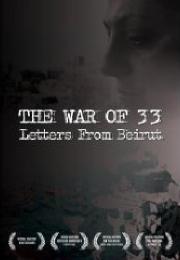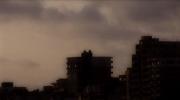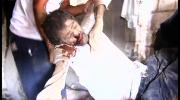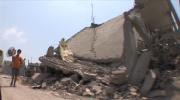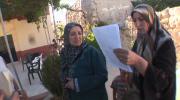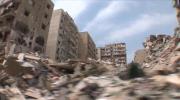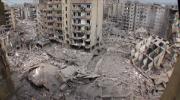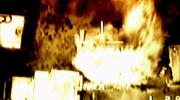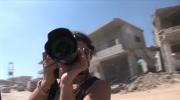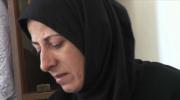Changes made to The War of 33
Revision 3
Created on Thursday, 28th August 2008, 14:29
Change Submitted by Si Wooldridge
List of Changes:
- Change #1 - ypes). <newline> <newline> [imgmc=
- Change #2 - city. <newline> <newline> <newline> [imgmc=
- Change #3 - laces. <newline> <newline> [imgmc=
Revision 2
Created on Thursday, 28th August 2008, 14:28
Change Submitted by Si Wooldridge
List of Changes:
-
Change #1 -
<newline>
<newline>
<newline> <newline> And who will have won when the soldiers have gone from the Lebanon? <newline> <newline> <newline> <newline> Good question, Phil. Wish I knew. It seems as if the Lebanon and Beirut in particular is set as the punchbag in the Middle East. Located roughly in the middle of the northwestern peninsula of Lebanon, Beirut is the capital city and also main seaport of this country. Beirut seems to always been used as the punch bag in middle eastern conflict and the overriding image portrayed in endless news items over the decades has been a city in ruins (and also shown in much the same light in Charlie Sheen action vehicle Navy SEALS, which is not a plug but just a reminder of Western stereotypes). <newline> <newline> <newline> <newline> In the summer of 2006, Israel invaded Lebanon and Hanady Salman, a native journalist, wrote a series of letters on a blog documenting a personal and powerful account on the effect of this invasion and war on the ordinary people of Beirut. This isn’t a story of Hezbollah or courageous freedom fighters standing up to the mass weapons of the Isreali fighting machine. This is the effect of indiscriminate war on the civilian population. <newline> <newline> <newline> <newline> Armed with a video camera, Salman and a friend tour the ruined areas of Beirut looking for the human angle to this war and find it in abundance, with tragic and powerful footage that you probably won’t see on any mainstream media except perhaps Al-Jazeera. Western news journalists tend to focus understandably on the major incidents of these conflicts and on the power games between Israel and Hezollah. What gets forgotten is the impact of these ‘games’ on the ordinary families who live in this city. <newline> <newline> <newline> <newline> [heading][b]Visual[/b] [/heading] <newline> <newline> <newline> <newline> Despite using some TV footage and stills, which was inevitable, the piece as a whole feels like almost like the recording of a road trip through Beirut. It’s very real (of course it is) and you can really feel the pain and devastation on this city. <newline> <newline> <newline> <newline> [heading][b]Audio[/b] [/heading] <newline> <newline> <newline> <newline> 2.0 Stereo soundtrack but sadly no subtitles, the piece is superbly narrated by Hanady Salman alongside some rather haunting music. <newline> <newline> <newline> <newline> [heading][b]Extras[/b] [/heading] <newline> <newline> <newline> <newline> Trailers for other Big Noise Films productions. <newline> <newline> <newline> <newline> [heading][b]Overall[/b] [/heading] <newline> <newline> <newline> <newline> Experience shapes us all. I used that phrase in a recent review on the film The Prisoner, about Yunis Khatayer Abbas. It’s never more true here. I have no idea what the political leanings of Lebanese journalist Hanady Salman were, but I do know what her experiences in her home city have done to shape how she will bring up her daughter. She knows who her enemy is and she his adamant that her daughter Kinda will know as well, and also know about how the Israelis have killed innocent civilians in Beirut and laid the city to waste in places. <newline> <newline> <newline> <newline> This film lays bare the devastation and emotional response to death. We see not only the broken shells of buildings that were once homes but also Red Cross workers trying to pull out the dead bodies of adults and children alike. There are interviews with women either caught up in the devastation or who have lost loved ones. These people, along with Salman, will influence and shape the next generation. Cause and effect. <newline> <newline> <newline> <newline> It’s also a film about hope though. Beirut has been laid waste previously but refuses as a city to die. When the bombing stops, the reconstruction begins. It’s always been that way and will continue to be that way. One of the most optimistic scenes in this film is that of a family still living in their remnants of their destroyed house, a young girl making coffee in their shell of a kitchen, stepping over rubble to serve it to her family. They are proud and defiant, adamant that even if a single column of their house remained that they would live beside it. This is true courage. <newline> <newline> <newline> <newline> This is their story.And who will have won when the soldiers have gone from the Lebanon? <newline> <newline>Good question, Phil. Wish I knew. It seems as if the Lebanon and Beirut in particular is set as the punchbag in the Middle East. Located roughly in the middle of the northwestern peninsula of Lebanon, Beirut is the capital city and also main seaport of this country. Beirut seems to always been used as the punch bag in middle eastern conflict and the overriding image portrayed in endless news items over the decades has been a city in ruins (and also shown in much the same light in Charlie Sheen action vehicle Navy SEALS, which is not a plug but just a reminder of Western stereotypes). <newline> [imgmc=0000203959.jpg|0000107058] <newline>In the summer of 2006, Israel invaded Lebanon and Hanady Salman, a native journalist, wrote a series of letters on a blog documenting a personal and powerful account on the effect of this invasion and war on the ordinary people of Beirut. This isn’t a story of Hezbollah or courageous freedom fighters standing up to the mass weapons of the Isreali fighting machine. This is the effect of indiscriminate war on the civilian population. <newline> <newline>Armed with a video camera, Salman and a friend tour the ruined areas of Beirut looking for the human angle to this war and find it in abundance, with tragic and powerful footage that you probably won’t see on any mainstream media except perhaps Al-Jazeera. Western news journalists tend to focus understandably on the major incidents of these conflicts and on the power games between Israel and Hezollah. What gets forgotten is the impact of these ‘games’ on the ordinary families who live in this city. <newline> <newline>[heading][b]Visual[/b] [/heading] <newline> <newline>Despite using some TV footage and stills, which was inevitable, the piece as a whole feels like almost like the recording of a road trip through Beirut. It’s very real (of course it is) and you can really feel the pain and devastation on this city. <newline> [imgmc=0000203955.jpg|0000107054] <newline>[heading][b]Audio[/b] [/heading] <newline> <newline>2.0 Stereo soundtrack but sadly no subtitles, the piece is superbly narrated by Hanady Salman alongside some rather haunting music. <newline> <newline>[heading][b]Extras[/b] [/heading] <newline> <newline>Trailers for other Big Noise Films productions. <newline> <newline>[heading][b]Overall[/b] [/heading] <newline> <newline>Experience shapes us all. I used that phrase in a recent review on the film The Prisoner, about Yunis Khatayer Abbas. It’s never more true here. I have no idea what the political leanings of Lebanese journalist Hanady Salman were, but I do know what her experiences in her home city have done to shape how she will bring up her daughter. She knows who her enemy is and she his adamant that her daughter Kinda will know as well, and also know about how the Israelis have killed innocent civilians in Beirut and laid the city to waste in places. <newline> [imgmc=0000203953.jpg|0000107052] <newline>This film lays bare the devastation and emotional response to death. We see not only the broken shells of buildings that were once homes but also Red Cross workers trying to pull out the dead bodies of adults and children alike. There are interviews with women either caught up in the devastation or who have lost loved ones. These people, along with Salman, will influence and shape the next generation. Cause and effect. <newline> <newline>It’s also a film about hope though. Beirut has been laid waste previously but refuses as a city to die. When the bombing stops, the reconstruction begins. It’s always been that way and will continue to be that way. One of the most optimistic scenes in this film is that of a family still living in their remnants of their destroyed house, a young girl making coffee in their shell of a kitchen, stepping over rubble to serve it to her family. They are proud and defiant, adamant that even if a single column of their house remained that they would live beside it. This is true courage. <newline> <newline>This is their story. <newline> <newline> [imgmc=0000203952.jpg|0000107051]
Revision 1
Created on Thursday, 28th August 2008, 14:25
Change Submitted by Si Wooldridge
List of Changes:
- Change #1 - [heading][b]Introduction[/b] [/heading] <newline> <newline> <newline> <newline> And who will have won when the soldiers have gone from the Lebanon? <newline> <newline> <newline> <newline> Good question, Phil. Wish I knew. It seems as if the Lebanon and Beirut in particular is set as the punchbag in the Middle East. Located roughly in the middle of the northwestern peninsula of Lebanon, Beirut is the capital city and also main seaport of this country. Beirut seems to always been used as the punch bag in middle eastern conflict and the overriding image portrayed in endless news items over the decades has been a city in ruins (and also shown in much the same light in Charlie Sheen action vehicle Navy SEALS, which is not a plug but just a reminder of Western stereotypes). <newline> <newline> <newline> <newline> In the summer of 2006, Israel invaded Lebanon and Hanady Salman, a native journalist, wrote a series of letters on a blog documenting a personal and powerful account on the effect of this invasion and war on the ordinary people of Beirut. This isn’t a story of Hezbollah or courageous freedom fighters standing up to the mass weapons of the Isreali fighting machine. This is the effect of indiscriminate war on the civilian population. <newline> <newline> <newline> <newline> Armed with a video camera, Salman and a friend tour the ruined areas of Beirut looking for the human angle to this war and find it in abundance, with tragic and powerful footage that you probably won’t see on any mainstream media except perhaps Al-Jazeera. Western news journalists tend to focus understandably on the major incidents of these conflicts and on the power games between Israel and Hezollah. What gets forgotten is the impact of these ‘games’ on the ordinary families who live in this city. <newline> <newline> <newline> <newline> [heading][b]Visual[/b] [/heading] <newline> <newline> <newline> <newline> Despite using some TV footage and stills, which was inevitable, the piece as a whole feels like almost like the recording of a road trip through Beirut. It’s very real (of course it is) and you can really feel the pain and devastation on this city. <newline> <newline> <newline> <newline> [heading][b]Audio[/b] [/heading] <newline> <newline> <newline> <newline> 2.0 Stereo soundtrack but sadly no subtitles, the piece is superbly narrated by Hanady Salman alongside some rather haunting music. <newline> <newline> <newline> <newline> [heading][b]Extras[/b] [/heading] <newline> <newline> <newline> <newline> Trailers for other Big Noise Films productions. <newline> <newline> <newline> <newline> [heading][b]Overall[/b] [/heading] <newline> <newline> <newline> <newline> Experience shapes us all. I used that phrase in a recent review on the film The Prisoner, about Yunis Khatayer Abbas. It’s never more true here. I have no idea what the political leanings of Lebanese journalist Hanady Salman were, but I do know what her experiences in her home city have done to shape how she will bring up her daughter. She knows who her enemy is and she his adamant that her daughter Kinda will know as well, and also know about how the Israelis have killed innocent civilians in Beirut and laid the city to waste in places. <newline> <newline> <newline> <newline> This film lays bare the devastation and emotional response to death. We see not only the broken shells of buildings that were once homes but also Red Cross workers trying to pull out the dead bodies of adults and children alike. There are interviews with women either caught up in the devastation or who have lost loved ones. These people, along with Salman, will influence and shape the next generation. Cause and effect. <newline> <newline> <newline> <newline> It’s also a film about hope though. Beirut has been laid waste previously but refuses as a city to die. When the bombing stops, the reconstruction begins. It’s always been that way and will continue to be that way. One of the most optimistic scenes in this film is that of a family still living in their remnants of their destroyed house, a young girl making coffee in their shell of a kitchen, stepping over rubble to serve it to her family. They are proud and defiant, adamant that even if a single column of their house remained that they would live beside it. This is true courage. <newline> <newline> <newline> <newline> This is their story.
Initial Version
Created on Thursday, 28th August 2008, 14:25
First Submitted by Si Wooldridge
